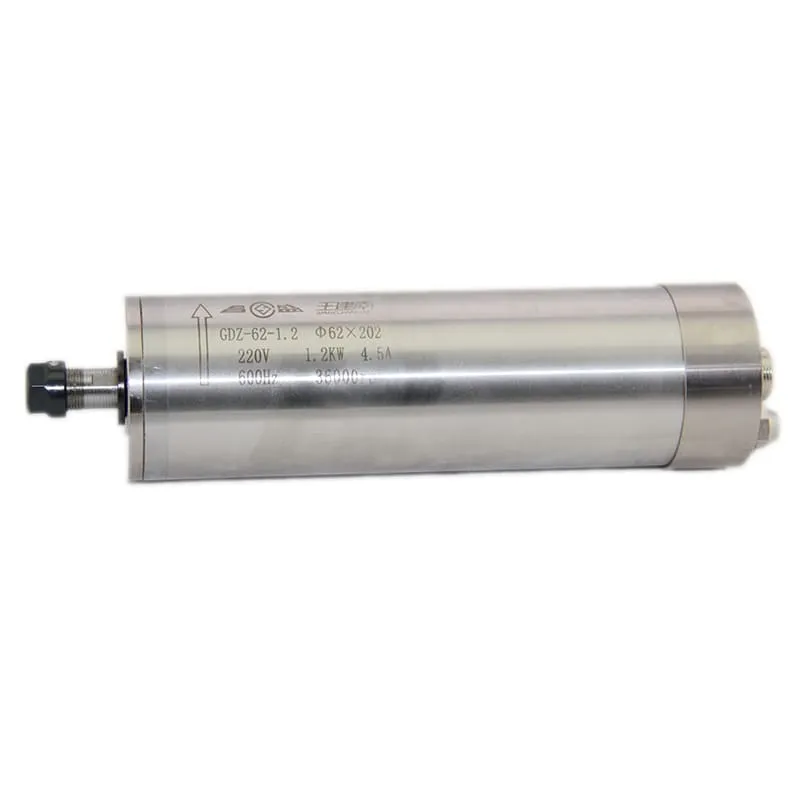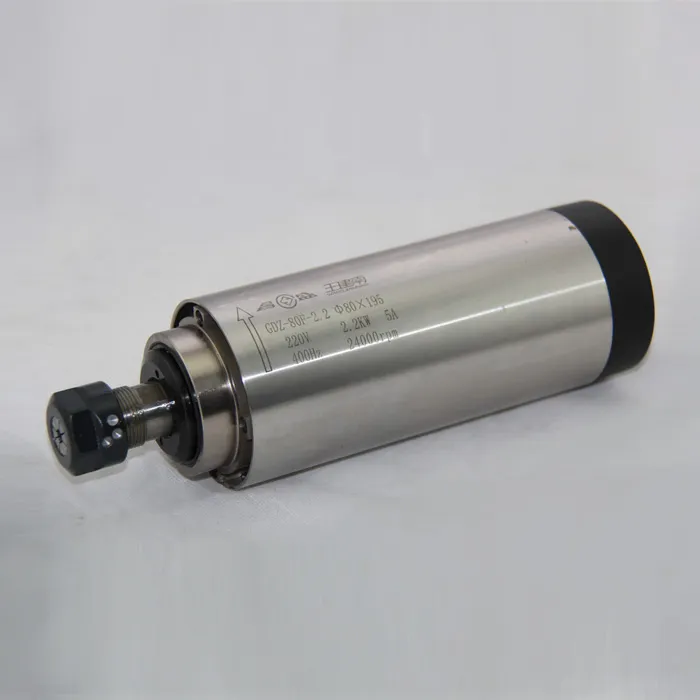If you are fascinated by technology, manufacturing, and working with your hands, a career in CNC machining could be the perfect fit. However, the challenge for many beginners is figuring out how to break into the CNC field with no prior experience. This guide will walk you through steps you can take to get your foot in the door, from developing essential skills to finding job opportunities.
Understanding CNC and Its Importance
CNC, which stands for Computer Numerical Control, refers to the automated control of machining tools using a computer. CNC machines, such as lathes, routers, and mills, are vital in modern manufacturing. They are used to make components and parts across various industries, including automotive, aerospace, and furniture.
CNC programmers and machinists bring the design to life by using G-code and CAD/CAM software to precisely machine materials. A successful CNC machinist needs a combination of technical skills, attention to detail, and problem-solving abilities to produce high-quality parts.
How to Begin a CNC Career Without Experience
1. Learn the Basics of CNC Machining
The first step in your CNC journey is to familiarize yourself with the basics of machining and CNC technology. The most common CNC machines are lathes, mills, and routers. Start by learning what each of these machines does, the types of materials they work with, and their applications.
- Online Courses: Many platforms offer affordable online courses that cover the fundamentals of CNC machining, such as Udemy, Coursera, and LinkedIn Learning.
- YouTube: Watching tutorials on platforms like YouTube can also be a great resource to understand the basics. Search for videos on G-code, M-code, and machine operation.
- Books: Reading books on CNC machining can provide you with a comprehensive understanding of the concepts.
2. Enroll in a Training Program or Community College Course
If you are serious about pursuing a career in CNC machining, consider enrolling in a training program at a community college or vocational school. These programs often offer hands-on experience, allowing you to learn how to operate a CNC machine, set it up, and troubleshoot.
Some programs also partner with local manufacturers to provide internships, giving you valuable on-the-job training. Getting certified can significantly boost your job prospects, especially for entry-level roles.

For those interested in getting into the spindle motor aspect of CNC machining, check out our available spindles here.
3. Gain Experience Through Internships or Apprenticeships
Experience is often key to landing a CNC job. If you have no experience, an apprenticeship or internship is one of the best ways to get started. Many manufacturers are willing to train entry-level workers with little to no experience.
- Apprenticeships: Some companies offer apprenticeships that provide structured learning in combination with practical work. As an apprentice, you work under an experienced machinist to learn the trade.
- Job Shadowing: If an apprenticeship isn’t an option, ask local manufacturers if you can spend a day or two job shadowing to see what a CNC machinist does in real-time. This helps build connections and a deeper understanding of the role.
4. Practice on Your Own Time
If you want to stand out as a prospective CNC operator, you can start practicing on your own time. Practicing CNC techniques can be done even without access to a machine by focusing on the following:
- CAD/CAM Software: You can download trial versions of CAD (Computer-Aided Design) and CAM (Computer-Aided Manufacturing) software to practice creating tool paths and G-code.
- Simulation Software: Many free CNC simulators are available that allow you to simulate CNC machine operations. These programs can help you understand how CNC programs work and how to troubleshoot common issues.
Important Skills to Acquire for CNC Jobs
1. CAD/CAM Software Skills
CAD/CAM software is the backbone of CNC machining. It allows you to create designs and generate tool paths for cutting materials. Learn how to use programs like Fusion 360, SolidWorks, or Mastercam. Many of these programs offer free trials or educational versions, making it easy to get started.
- CAD: The design aspect, which involves drawing the part or product.
- CAM: The manufacturing aspect, which involves creating tool paths and generating the G-code that drives CNC machines.
2. G-Code Knowledge
G-code is the language of CNC machines. Knowing how to read and write G-code is a fundamental skill for CNC operators and programmers.
Here is an example of what basic G-code looks like:
- G90: Absolute positioning.
- M03 S1000: Start spindle at 1000 RPM.
- G01: Linear cut to specified coordinates at a feed rate.
Learning G-code will make you more attractive to employers and give you an understanding of how CNC machines execute their tasks.
3. Mechanical Aptitude
A CNC machinist must have good mechanical skills to understand how the machines work, troubleshoot problems, and make necessary adjustments. Developing mechanical aptitude will help you handle issues like tool wear, part alignment, and material changes.
4. Attention to Detail
In CNC machining, precision is critical. As an operator, you must follow designs to exact specifications. The smallest mistake can ruin a part, making attention to detail a crucial skill for a CNC job.
5. Soft Skills: Communication and Teamwork
Don’t forget the importance of soft skills like communication and teamwork. CNC operators often work in teams and must communicate effectively with supervisors, quality assurance technicians, and fellow machinists. You’ll need to explain machine problems, read blueprints accurately, and help ensure projects stay on schedule.
Where to Look for CNC Jobs with No Experience
1. Local Manufacturing Companies
Many local manufacturers are often looking for entry-level CNC operators or machinists. These companies may not always advertise their jobs on major platforms, so consider calling them directly to ask about any open positions or entry-level training opportunities.

Interested in learning more about spindle upgrades for CNC machines? Check out our spindle options here.
2. Online Job Boards
Websites like Indeed, LinkedIn, and Glassdoor have many listings for entry-level CNC positions. Use keywords like “CNC Operator Entry Level” or “CNC Apprentice” to find suitable jobs.
3. Staffing Agencies
Staffing agencies that specialize in manufacturing and technical roles can help place you in an entry-level CNC operator role. They often have connections with companies looking for temporary or permanent employees.
4. Online Forums and Groups
There are many CNC communities and forums where job opportunities are posted, such as CNCzone and Practical Machinist. Joining these forums can help you network with professionals in the industry who may have insider knowledge of openings.
CNC Job Search Tips for Beginners
1. Create a Strong Resume and Cover Letter
Even without experience, a well-crafted resume and cover letter can go a long way. Highlight any related skills or courses you’ve taken and be sure to mention any hands-on projects you’ve done, even if they were for school or personal practice.
2. Start with an Entry-Level Position
Look for jobs listed as CNC Operator I or Entry-Level Machinist. These roles are specifically designed for beginners and provide the training and experience needed to advance to higher-level roles.
3. Be Open to Shifts
Many CNC positions operate around the clock, meaning shift work is common. Be open to starting with an evening or weekend shift if it gives you a better opportunity to gain experience.
4. Highlight Your Willingness to Learn
Employers want candidates who are eager to learn. Emphasize your passion for CNC and your willingness to undergo training. If you have taken extra steps, such as online courses or practicing G-code, make sure to mention this in your interview.
Common CNC Job Roles for Beginners
1. CNC Operator I
This is the most common entry-level position. A CNC Operator I is responsible for loading materials into the machine, running the program, and inspecting the finished part for quality.
2. CNC Apprentice
As a CNC Apprentice, you will work under the guidance of experienced machinists to learn machine operation, tool setting, and program adjustments.
3. CNC Assistant
A CNC Assistant helps the operator with tasks such as setting up the machine, maintaining tools, and ensuring that workpieces are properly prepared.
4. Quality Control Assistant
While not directly involved in machine operation, a Quality Control Assistant works with the CNC team to inspect and ensure parts meet specifications. This role provides an excellent introduction to CNC machining for those interested in quality assurance.
Conclusion
Landing a CNC job with no experience may seem challenging, but by following these steps, you can build the skills and confidence needed to break into the field. Learn as much as you can about CNC operations, get certified, practice on your own, and look for opportunities to gain hands-on experience. The journey might be demanding, but the rewards—a stable career with excellent growth opportunities—are well worth it.
Explore more about CNC spindle motors, spindle upgrades, and related components at Spindle Motorshop.
FAQs
1. How do I start a career in CNC machining with no experience?
Starting a CNC career without experience involves learning the basics through online courses, practicing G-code, gaining certifications, and applying for entry-level positions such as CNC Operator or Apprentice.
2. What skills are needed for CNC operators?
Key skills include familiarity with CAD/CAM software, understanding G-code, mechanical aptitude, attention to detail, and strong communication abilities.
3. Can I learn CNC on my own?
Yes, it’s possible to learn CNC on your own using online courses, YouTube tutorials, and simulation software. However, hands-on experience is crucial for mastering CNC machining.
4. Where can I get CNC training?
Training is available through community colleges, vocational schools, online courses, and apprenticeships offered by manufacturers.
5. What software do CNC operators use?
CNC operators use CAD software for design (such as Fusion 360) and CAM software for tool path generation (such as Mastercam). For machine control, Mach3 and LinuxCNC are popular choices.
6. What should I expect in an entry-level CNC position?
In an entry-level CNC position, expect to start with basic tasks such as loading materials, running simple programs, and assisting with machine maintenance under the supervision of experienced machinists.

